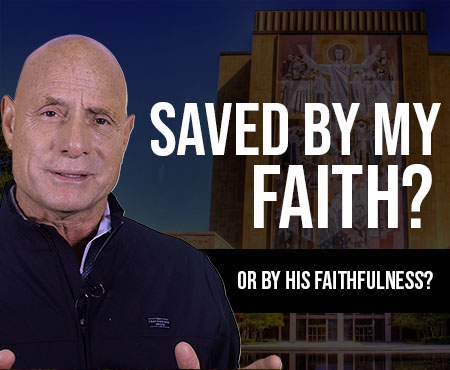Do the words “eternal punishment,” in the original Greek language (aionion kolasin) mean something other than what they appear to mean on surface? If yes, then (1) many other bible passages that support God’s plan to one day reconcile and restore all things are in alignment and (2) we Christians can, should and will still invite all to come to know Christ now, based on love, not fear. Five minutes…watch 🙂
FIVE MIN. POWER MESSAGE #62: Does God punish… forever? 3-11-18
details










I love this video! Such a power packed 5 minutes!
I would like to offer another perspective on 1 Timothy 1:17. A reading of this verse in the Young’s Literal version will give insight: “17 and to the King of the ages, the incorruptible, invisible, only wise God, [is] honour and glory — to the ages of the ages! Amen.” I actually elaborated on this verse in Raising Hell in the chapter about aionios (Eternity vs. Ages), because aionios NEVER means eternal. To say that it does only brings confusion and the inability of people to drop their fear of eternal punishment. Here’s an excerpt from Raising Hell (www.raisinghellbook.com):
Eonian God
One of the first questions people usually ask at this point is, “How can eonian not mean eternal since it’s the adjective used to describe God?”
Does the fact that God is described as “eonian” negate His everlasting (or outside of time) quality? Absolutely not! This use of words by the original writers is merely describing one of God’s many attributes as being the “God of the ages,” reigning supreme over His time-bound plan.
Consider 1 Tim. 1:17, the only verse that uses this phrase. Most modern versions render something like this: “Now to the King eternal, immortal, invisible, the only God, be honor and glory forever and ever.” But check out Young’s Literal*:
…and to the King of the ages, the incorruptible, invisible, only wise God, [is] honour and glory—to the ages of the ages! Amen (YLT).
This verse says nothing about God’s enduring quality, but it is speaking directly about His reign as the King of the ages (not unlike Jesus being referred to as the “rock of the ages”). Hence, God will receive glory throughout them and especially at their consummation! The ages definitely come to an end (see Heb. 9:26 and 1 Cor. 10:11). As to what the early Hebrews understood about the duration of God, I don’t think He ever had to explain to anyone that He was enduring (even though they didn’t grasp a word like “eternal” yet). That would have been like referring to “cold ice” or a “wet shower.”
There is actually a Greek word used only once in the NT to reveal more of God’s enduring, incomprehensible nature. “For since the creation of the world His invisible attributes, His eternal (aidios) power and divine nature, have been clearly seen, being understood through what has been made, so that they are without excuse” (Romans 1:20). Aidios offers a greater sense of His unperceived and perpetual nature, unlimited by space and time, but still does not mean eternal in the sense we regard it today.
What’s interesting about the word eternal is that it wasn’t even derived from Greek (the original language of the NT), but was derived from Latin. In other words, the word eternity did not have roots in the Greek (or Hebrew) Scriptures. I looked up the etymology for the word eternal in an etymological dictionary. The English word is a late 14th century word, derived from the Latin word aeternus, which is defined as: Of an age, lasting, enduring, permanent, endless, contraction of aeviternus “of great age,” from aevum “age” (see eon).51
As you consider the somewhat contradictory definitions of this Latin (Roman) word, keep in mind how many centuries, church leaders, and church doctrines influenced the definition along the way.
I loved the way you fleshed out kolasis and it’s intent for parental corrective measures. Such good stuff!
Hi Julie- thank you for your very thoughtful and DEEP comment. Our God is the the God of the ages (and the ‘aionion’ ages will pass) and also is our eternal ‘aidios’ God! You have the wisdom of a scholar (and you are) and the ability to speak plainly and powerfully, as you did in your excellent book. RAISING HELL, that I hope everyone will purchase OR download for free at your website; http://www.julieferwerda.com/.